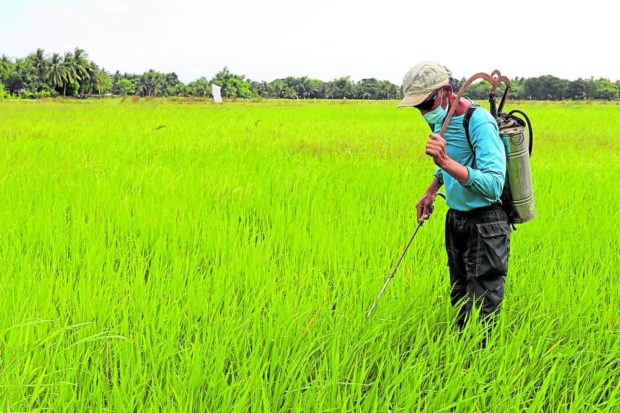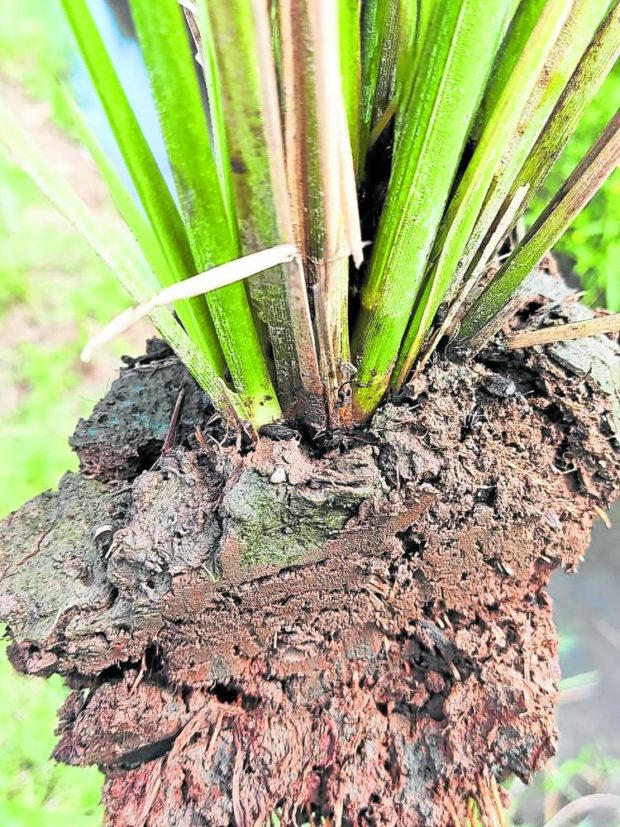
PEST BUSTER: A farmer uses pesticide as rice black bugs appear in farms at Barangay Townsite in Mariveles, Bataan, after the insects attacked ricefields in nearby Pampanga province. —PHOTO COURTESY OF DA CENTRAL LUZON
MABALACAT CITY, Pampanga, Philippines — Rice black bugs (RBB) that infested and destroyed crops in some parts of the country last year have been monitored in farmlands in at least three towns in this province, an official of the Department of Agriculture (DA) said on Wednesday.
Trojane Soberano, science research specialist at the DA’s Central Luzon Regional Crop Protection Center, said about 11 hectares of farms planted with rice in Mexico town alone were affected by the sap-sucking bugs.
“The RBB incidence in Mexico was already controlled after farmers increased the water on their farms to submerge and kill the eggs, and they used chemical pesticides to kill the adult bugs,” Soberano told the Inquirer in a phone interview.
Although the pests could be controlled using chemical pesticides, Soberano asked farmers to use Metarhizium anisopliae, a fungus that attacks black bugs.Soberano also clarified that the presence of black bugs in Pampanga farmlands, especially in Apalit and Arayat towns, could not be considered as infestation yet, describing it only as “sightings” of the bugs.
But she said these farms were being closely monitored by the DA and the office of the provincial agriculturist.According to the DA, farmers can manage black bug attacks by planting simultaneously, keeping the rice plants submerged under 5 to 7 centimeters of water to prevent eggs from developing and hatching, and using insect-killing fungus.
The DA has already distributed bags of Metarhizium anisopliae to farmers in Central Luzon to contain the infestation through an alternative and safer pesticide, Soberano said.

MEAL TIME Rice black bugs feed in stem nodes, or at the base of the stem of rice crop. —PHOTO COURTESY OF DA CENTRAL LUZON
Light traps
The DA has also recommended “light trapping” the bugs five days before and five days after the full moon since the bugs attach themselves to light bulbs, which fry their inner wings until they fall dead. It said trapped bugs can be buried, burned or sun-dried and fed to chicken, duck or fish.
A 2005 report of the International Rice Research Institute (Irri) said the bugs attack “almost all the stages of the rice crop, particularly from maximum tillering to ripening.”
“The nymphs are destructive as they can feed at the basal part of the rice crop for up to 42 days. The insects prefer stem nodes, or the base of the stem, as feeding sites because of the large sap reservoirs,” the Irri said.

